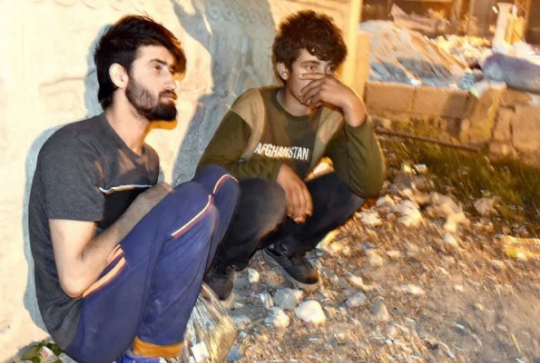World Must Not Wash Its Hands of Afghanistan
Mohammad Sadiq Sohail | 30 August 2022
Deny recognition of the Taliban until they extend fundamental, universally recognized human rights to all citizens
A year after the fall of Kabul and the end of the US military mission in Afghanistan, the country remains a place of misery. No foreign government has recognized the Taliban as the legitimate government, and much of the modern economy has collapsed.
The new rulers have not kept earlier promises, including high-school-level education for girls and amnesty for former Afghan government soldiers and civil servants.
Moreover, the July 31 drone killing of 9/11 mastermind Ayman al-Zawahiri in a safe house in central Kabul showed that key elements of the Taliban leadership still harbor international terrorists, the original cause of the US intervention 21 years ago.
Fragile rule
Afghanistan seems trapped in a vicious circle, and the 38 million people living in the country are the frontline victims of a profound and still deepening tragedy. Without human rights, the Taliban regime will not enjoy UN membership, widespread diplomatic recognition, robust international humanitarian assistance, or a broader base of legitimacy. Without outside support, Taliban rule remains fragile.
In some rural areas of the south long under Taliban control, life goes on much as before. But the loss of jobs in the more modern urban sectors and the scarcity of food has forced many Afghans back into an almost primitive economy, selling household possessions and sometimes even children to survive.
The world cannot simply wash its hands of this situation. There are three overriding US and NATO interests: ensuring that Afghanistan does not again becomes a haven and training ground for international terrorists; easing the world’s largest humanitarian/human rights crisis; and assisting endangered Afghans eligible for emigration.
Honoring US commitments
The Zawahiri case demonstrated the need for a strong reminder to the Taliban of their obligation not to harbor terrorists. However, this goes beyond monitoring known terror groups and must include steps to prevent the rise of a new generation of extremists.
Moreover, the world needs to remain united in not recognizing the Taliban until they extend fundamental, universally recognized human rights to all citizens, including females.
Additionally, the United States needs to honor its commitments to the thousands of Afghans who loyally and bravely assisted US forces as doctors, technicians, interpreters, or otherwise. Many such allies and their dependents remain in horrific or life-threatening positions in Afghanistan. Some languish in third countries, such as Pakistan, waiting for their applications to be processed.
While the US government has recently eased some of the burdensome entry requirements, more needs to be done to reach out to these people and assist in their release and successful integration into new host societies.
Mohammad Sadiq Sohail was an adviser to the Ministry of Justice and a university instructor in political science in Afghanistan before he was forced to leave the country after the Taliban takeover in August 2021.
This article was originally published on Asia Times.
Views in this article are author’s own and do not necessarily reflect CGS policy.
